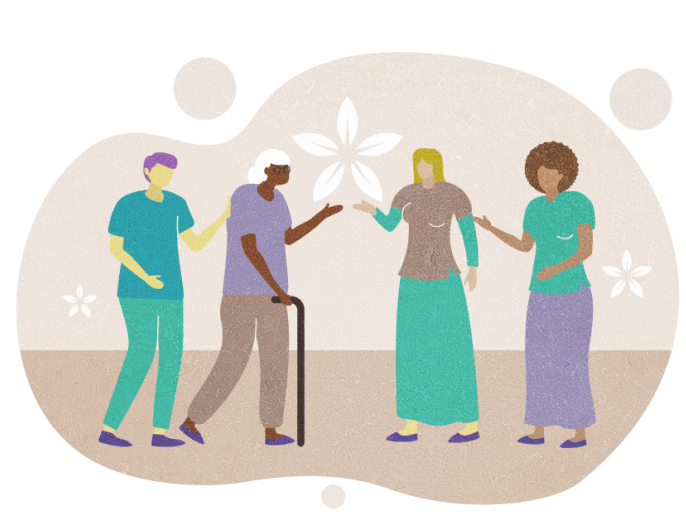The importance of socialisation for those with dementia
![]()

The importance of socialisation and stimulation for those with dementia
Those with dementia face numerous challenges as they struggle to cope with the condition’s adverse effects on their mental and physical wellbeing. Dementia can make people feel isolated and disconnected, leading to depression and further deterioration of their illness. Carers of those with dementia must ensure that they provide their loved ones with the necessary socialisation and stimulation opportunities to improve their quality of life.
Socialisation promotes mental health
Dementia can affect a person’s ability to socialise and communicate effectively. Interpersonal connections are crucial for mental wellbeing, and those with dementia need regular socialisation opportunities to stay engaged with life. Consequently, they require activities that can help them interact with family, friends, and carers. Socialising activities can include going for walks, picnics, game nights, and chatting with friends and family.
Stimulation promotes physical health
Physical activity and exercise are vital for those with dementia as they help improve circulation, enhance memory, and reduce anxiety. Stimulation activities such as music therapy, gardening, and games keep those with dementia mentally and physically active. Regular stimulation activities can also slow the progression of dementia, preventing the worsening of symptoms.
Socialisation and stimulation help combat isolation and loneliness
Isolation is a significant problem affecting many people with dementia. It can make them feel lonely, anxious, and depressed due to their inability to connect with the outside world. Establishing regular socialisation opportunities and providing stimulation activities can help combat isolation and encourage those with dementia to feel connected to the world around them.
Stress reduction
Caring for a person with dementia can be stressful, and carers may experience burnout due to the emotional and physical strain involved in this responsibility. Providing socialisation opportunities and stimulation activities for those with dementia can help reduce carer burnout by offering a respite from the caregiving responsibilities.
Connection to the community
Being part of a community can help create a great sense of self. Knowing that you are part of a group can create a sense of meaning and purpose, providing a grounding which is often difficult to recreate. Keeping community links active through attending local meetings or having neighbours visit, is essential to foster that sense of cohesion and community involvement.
Socialisation and stimulation activities are essential for ensuring that those with dementia maintain their emotional and physical health. Carers should create opportunities for their loved ones to socialise and engage in stimulating activities regularly. Providing such opportunities can help reduce the progression of dementia, prevent isolation, and promote a better quality of life. If you’d like to discuss your requirements with an expert, call us on 0208 857 7717.
Speak to our team
We’re always happy to have a friendly, informal chat. Call 0208 857 7717 to discuss your live-in care requirements with a member of our team.
